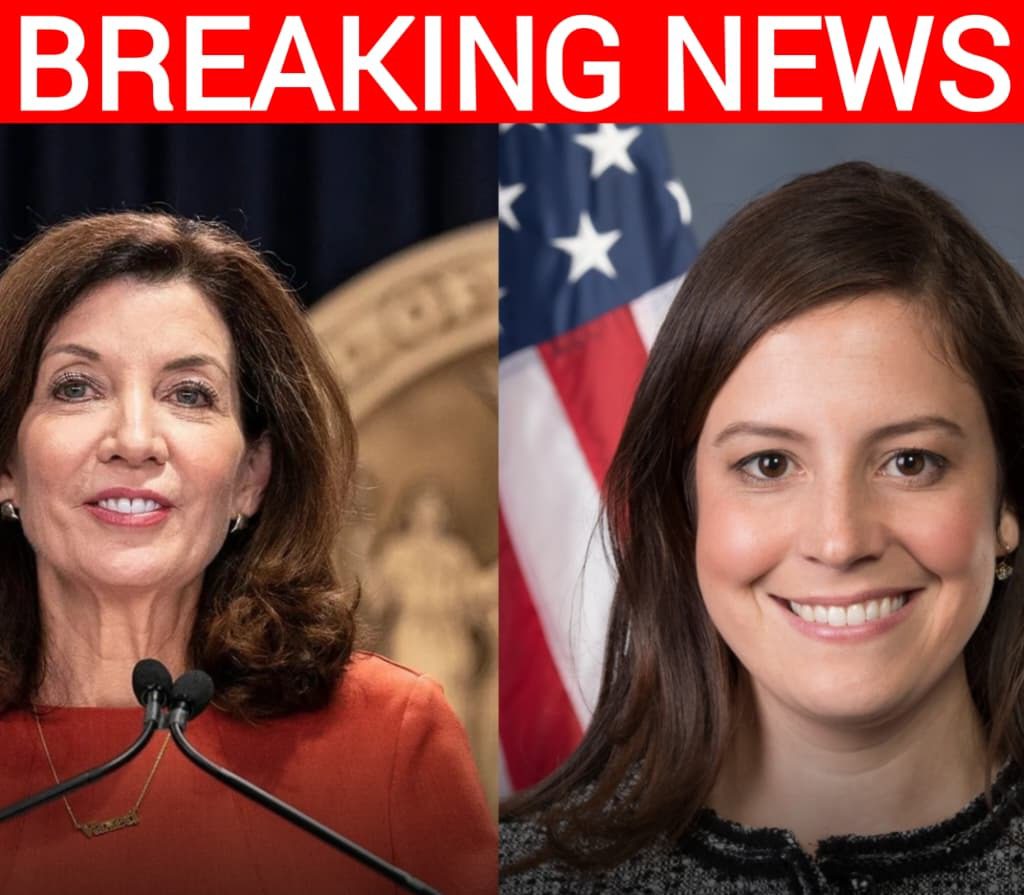New Poll Shows Kathy Hochul’s Lead Over Elise Stefanik Shrinking to Just Five Points — and the Race Ties After Socialist Endorsement Controversy
A new Grayhouse poll commissioned by a political action committee aligned with Rep. Elise Stefanik has rattled New York’s political scene, suggesting that the 2026 governor’s race could be far more competitive than expected. The poll, conducted among 1,250 likely voters, shows Democratic Governor Kathy Hochul leading Stefanik by a narrow 48% to 43% margin in a hypothetical matchup. But the most striking finding comes when voters are told that Hochul recently endorsed Democratic Socialist Assemblyman Zohran Mamdani for mayor of New York City — the race flips into a virtual tie, with Stefanik at 46.4% and Hochul slipping to 45.9%.
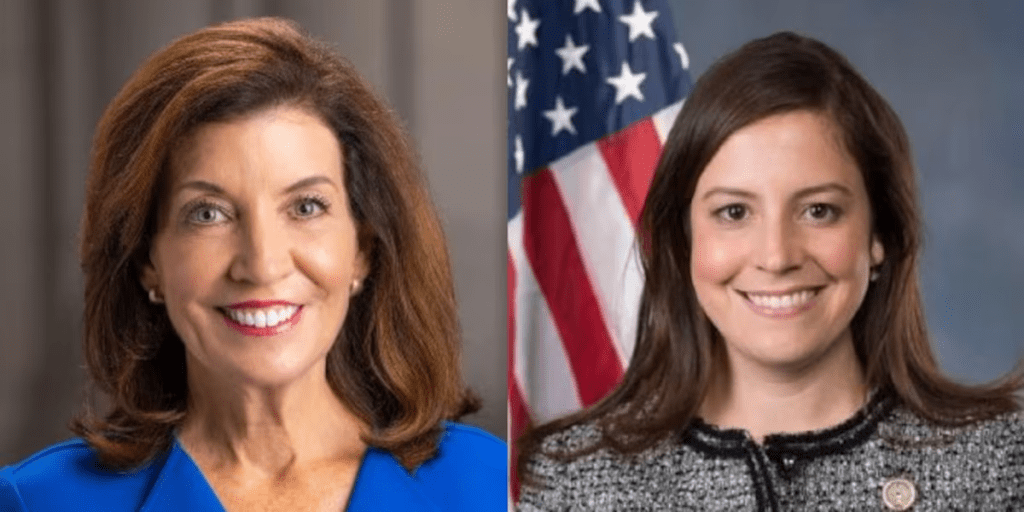
For a state that has been a Democratic stronghold for decades, the numbers are eye-opening. New York, long considered safely blue, hasn’t elected a Republican governor since George Pataki’s victory in 2002. Yet the combination of urban frustrations, rising crime concerns, and economic anxiety appears to be reshaping parts of the electorate, particularly in upstate and suburban regions where Stefanik has built a loyal base. The poll’s findings don’t just hint at a closer contest — they hint at a possible shift in mood among voters tired of establishment politics and drawn to candidates with strong anti-establishment messaging.
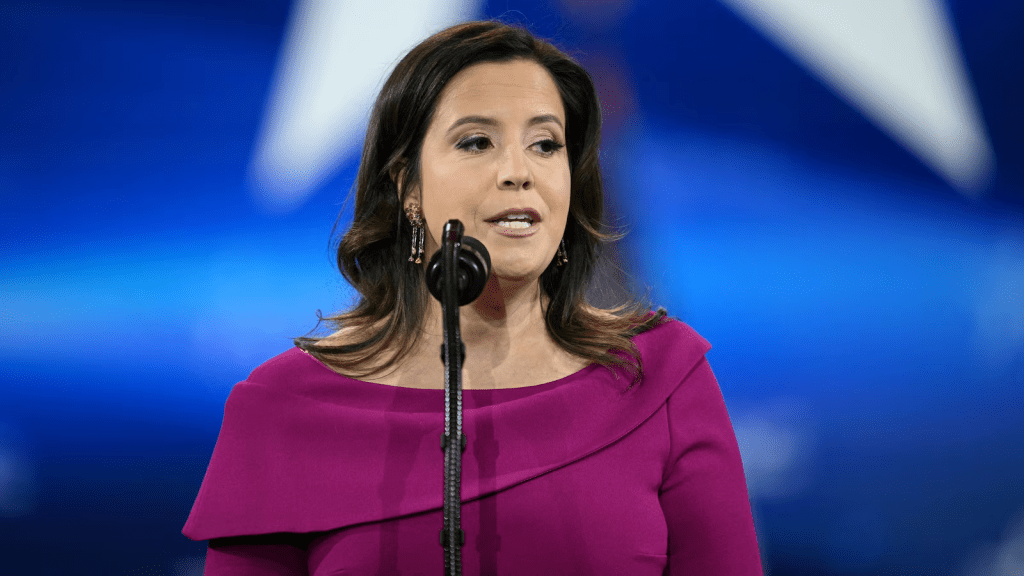
The controversy fueling the poll’s swing centers around Hochul’s September 2025 endorsement of Zohran Mamdani, a Democratic Socialist Assemblyman from Queens known for his left-wing positions on housing, policing, and immigration. While Hochul praised Mamdani’s “commitment to progressive values,” her gesture quickly became political ammunition for Republicans, who argue it alienates moderate Democrats and independents uneasy about the far left’s growing influence. What made matters worse for Hochul was that Mamdani did not reciprocate the endorsement, leaving her politically exposed and giving GOP strategists an easy opening to brand her as out of touch with mainstream voters.
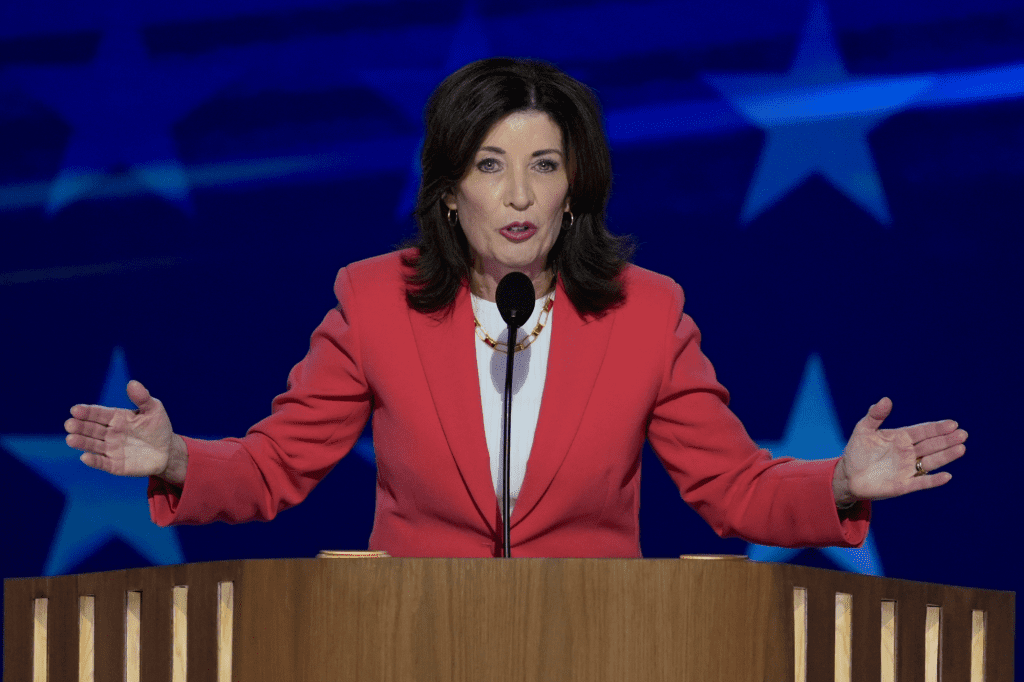
Republican strategists quickly seized on the moment, framing Hochul’s move as a sign she’s prioritizing ideological purity over public safety and economic growth. Stefanik’s team, which has been methodically building a statewide coalition, emphasized the contrast between the upstate congresswoman’s tough-on-crime stance and Hochul’s perceived alignment with New York City’s progressive wing. The strategy appears to be working — the poll shows Stefanik consolidating strong support among rural voters and making inroads in suburban swing regions that have trended Republican in recent years.
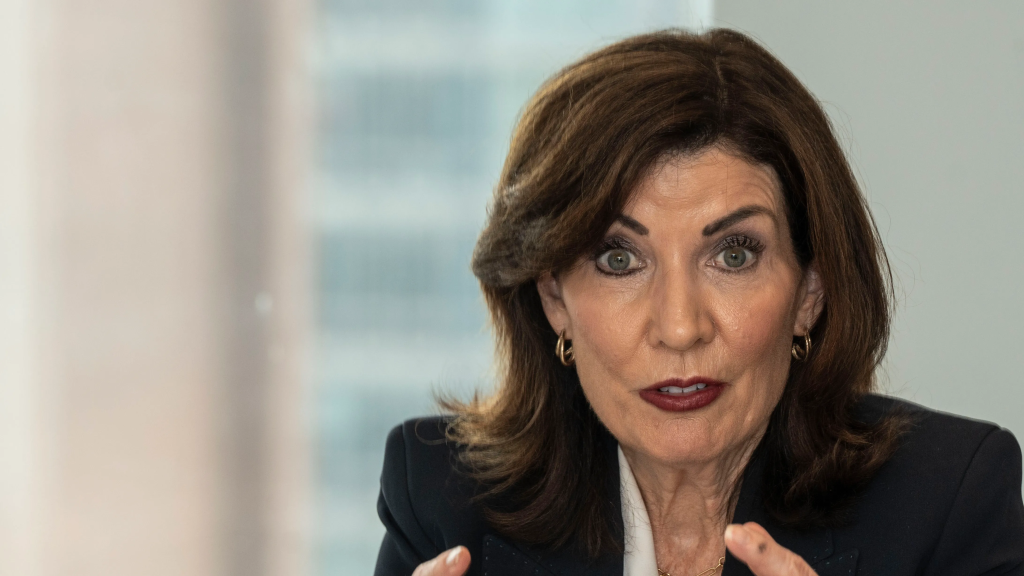
Still, political analysts caution against overinterpreting the results. The poll was conducted by a Republican-affiliated firm and funded by Stefanik’s own PAC, which means its methodology and weighting could lean in her favor. Nonetheless, the results capture a growing vulnerability for Hochul, whose approval ratings have fluctuated amid ongoing criticism of her handling of migrant resettlement programs and New York City’s cost-of-living crisis. Even among Democrats, there’s a sense of unease over her alliance with figures like Mamdani — especially as crime and housing remain front-and-center issues heading into the 2026 cycle.
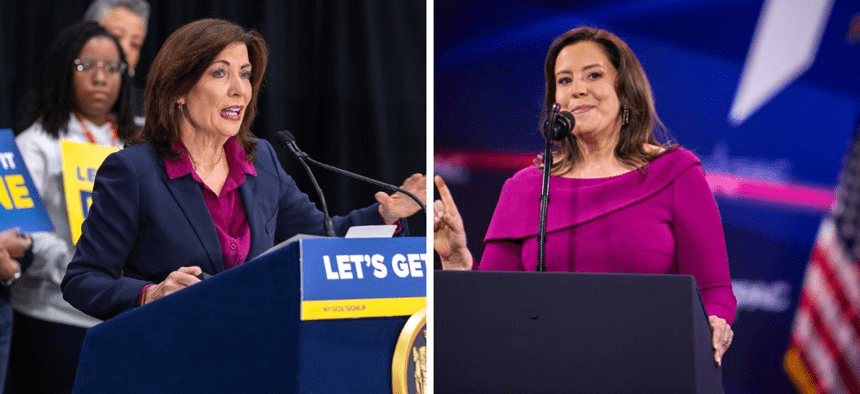
For Hochul, the challenge is walking a fine line between appealing to her party’s progressive base and maintaining the confidence of centrist voters who helped secure her narrow 2022 win. Her decision to back Mamdani was seen by insiders as a symbolic gesture toward party unity, but it may have inadvertently reinforced perceptions of ideological drift at a time when voters are craving stability and pragmatism.
Elise Stefanik, meanwhile, has carefully positioned herself as the face of a modern Republican resurgence in New York. Once viewed as a moderate voice in the GOP, she has become a prominent ally of former President Donald Trump while maintaining her appeal across working-class and rural communities. If she formally enters the 2026 race, she would represent the strongest Republican gubernatorial challenger in more than two decades.
While it’s far too early to declare New York “in play,” the Grayhouse poll is a reminder that political landscapes can shift fast — especially when cultural and ideological divides run deep. For now, the data underscores one key reality: if Governor Hochul’s coalition begins to fracture, even a Democratic fortress like New York could face an unexpected storm at the ballot box.
